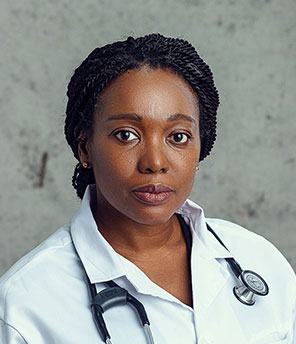An interventional cardiologist, Dr Mirabel Nwosu who is resident doctor at Evacare Hospital, Lekki, Lagos, has said that widespread use of sex enhancement drugs without doctor’s prescription is dangerous.
Dr. Nwosu who is into advanced cardiac life support, management of cardiac emergencies and basic interventional cardiology skills said this in an interview with DAYO OJERINDE of PUNCH newspaper.
She linked prevalence use of sexual enhancement medications in the country to rising cases of heart diseases.
She said: “The buyers of these sexually enhancing drugs are exposed to toxic side effects of the drugs especially without taking notes of the special precautions associated with their use.
“I think we live in an age of sexual revolution, and technology has made it easier for anyone to access sexual information online. The sexually enhancing medications are not regulated by the National Agency for Food and Drug Administration and Control and so can be easily purchased over the counter at pharmacy stores.
“Men do need sexually enhancing drugs in certain clinical situations of sexual under-performance. This can only be done after a thorough assessment of the individual by a doctor who will weigh the risks and benefits of using the drug. The doctor will also ensure that there are no dangerous drug interactions likely to cause harm.
She noted that use of sexually enhancing drug is the reason for sudden precipitous drop in blood pressure when the drug is used while the individual is on a nitrate medication; with other side-effects – fast and irregular heartbeat, dizziness, nausea and vomiting.
On heart disease, the cardiologist stated: “It is obvious that heart disease has now become very common in Nigeria, but not only that, it is now affecting the younger generation compared to previously. I think the reason is largely due to the western lifestyle which we have adopted. People are more career-oriented and now practise a more sedentary-based lifestyle characterised by lack of exercise, consumption of unhealthy meals, and less intake of healthy foods.
“Technology has also contributed significantly to this since we can afford to stay at home and order everything online. We also have access to entertainment on the television via [many] media outlets”.
Dr. Nwosu added: “The risk factors for heart disease can be divided into those that are modifiable and those that are non-modifiable.
“Modifiable risk factors mean those that the individual can change and thus reduce the risk by making the right decisions such as exercising, eating a healthy diet, taking medications when required, etc. The non-modifiable risk factors are those that are likely genetic and cannot be altered by the individual.
“The common non-modifiable ones are age, sex, family history of heart disease and ethnicity. The risk of heart disease increases with age and is more common in males. There are rare disease conditions that cause the blood to clot for unknown reasons or that result in the production of abnormal substances which predispose to heart disease.
The cardiologist gave examples of the modifiable risk factors to include: Sedentary lifestyle, Obesity, hypertension, diabetes mellitus, cigarette smoking as well as excessive intake of alcohol and high cholesterol.
On drug regulation, Dr. Nwosu said that the government can give the National Agency for Food and Drug Administration and Control the power to regulate the use of these drugs such that individuals will need a doctor’s prescription before the medication can be purchased from any pharmacy. The pharmacists should be mandated to discuss possible side effects of the medication and enquire about the use of any drug that can lead to a toxic combination.
“My advice to Nigerians is that prevention of heart disease is better than the cure. All efforts should be geared towards reducing or eliminating the risk factors for heart disease. They should eat right, exercise if possible and take medications if needed. See your doctor for any complaints of chest pain, awareness of heartbeat, excessive fatigue, dizziness, breathing difficulties, fainting spells or body swelling. Early diagnosis and prompt treatment save lives!, she said.







